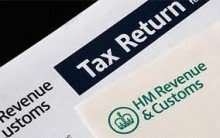If any of the following apply then, YES, you need to do a tax return:
-
You’re self-employed
-
You’re a company director, minister, Lloyd’s name or member
-
Your annual income is £100,000 or more
-
You have income from savings, investment or property (unless collected via PAYE)
- £10,000 or more from taxed savings and investments
- £2,500 or more from untaxed savings and investments
- £10,000 or more from property (before deducting allowable expenses)
- £2,500 or more from property (after deducting allowable expenses)
-
You need to claim expenses or reliefs
-
You or your partner receive Child Benefit and your income is over £50,000
-
You’re 65 and receive a reduced age-related allowance
-
You get income from overseas
-
You have income from trusts, settlements and estates
-
You have Capital Gains Tax to pay
-
You’ve lived or worked abroad or aren’t domiciled in the UK
-
You’re a trustee
For full details of who needs to do a tax return follow this link https://www.hmrc.gov.uk/sa/need-tax-return.htm
For details of how to register go to https://www.hmrc.gov.uk/sa/register.htm
I know that sometimes people simply don’t realise that they need to do a return, for example a newly appointed Director or someone receiving Dividends. HMRC often don’t know if you should be doing a return (if they think you should be they will contact you), so it is up to you to make sure you file a return and disclose your income to HMRC if any of the above apply.
If you think you have an excuse, think again!
https://stevejbicknell.com/2012/10/15/reasons-excuses-for-filing-your-self-assessment-return-late/
As you will see your chances of HMRC accepting your excuse are slim.
Employment Expenses – Use Form P87
As an employee you can claim tax relief for expenses incurred in doing your job (if not fully reimbursed by your employer), for example business mileage, cycling on business, hotels, meals, business phone calls, in fact anything as long as its business related
If your claim is less than £2500 you can make your claim using Form P87 without the need to do self assessment.
https://stevejbicknell.com/2011/12/20/how-to-claim-tax-relief-for-employment-expenses/
So having workout you need to do a return. and having registered online, and filed your first return with HMRC, what if you later find you have make a mistake, what can you do?
If you make a mistake on your tax return you’ve normally got 12 months from 31 January after the end of the tax year to correct it. This is called an ‘amendment’. For example, for the 2011-12 return you have until 31 January 2014 to make an amendment.
https://www.hmrc.gov.uk/sa/correct-repay.htm
What if you don’t file in time?
The penalties for late Self Assessment returns are:
- an initial £100 fixed penalty, which applies even if there is no tax to pay, or if the tax due is paid on time;
- after three months, additional daily penalties of £10 per day, up to a maximum of £900;
- after six months, a further penalty of 5 per cent of the tax due or £300, whichever is greater; and
- after 12 months, another 5 per cent or £300 charge, whichever is greater.
There are also additional penalties for paying late of 5 per cent of the tax unpaid at: 30 days; six months; and 12 months.
What if you don’t have all the answers, can you put in provisional figures?
There are occasions on which some information cannot be finalised within the formal self assessment time limits despite the taxpayer’s best efforts to do so. In such cases the taxpayer should include a ‘best estimate’ of the information in the tax return and, if appropriate, a corresponding provisional figure of the tax due. The provisional figures should be clearly identified as such in the tax return. A tax return containing a provisional figure should only be submitted once it is clear that a more accurate figure will not be available before the filing date.
https://www.hmrc.gov.uk/manuals/salfmanual/salf206.htm







